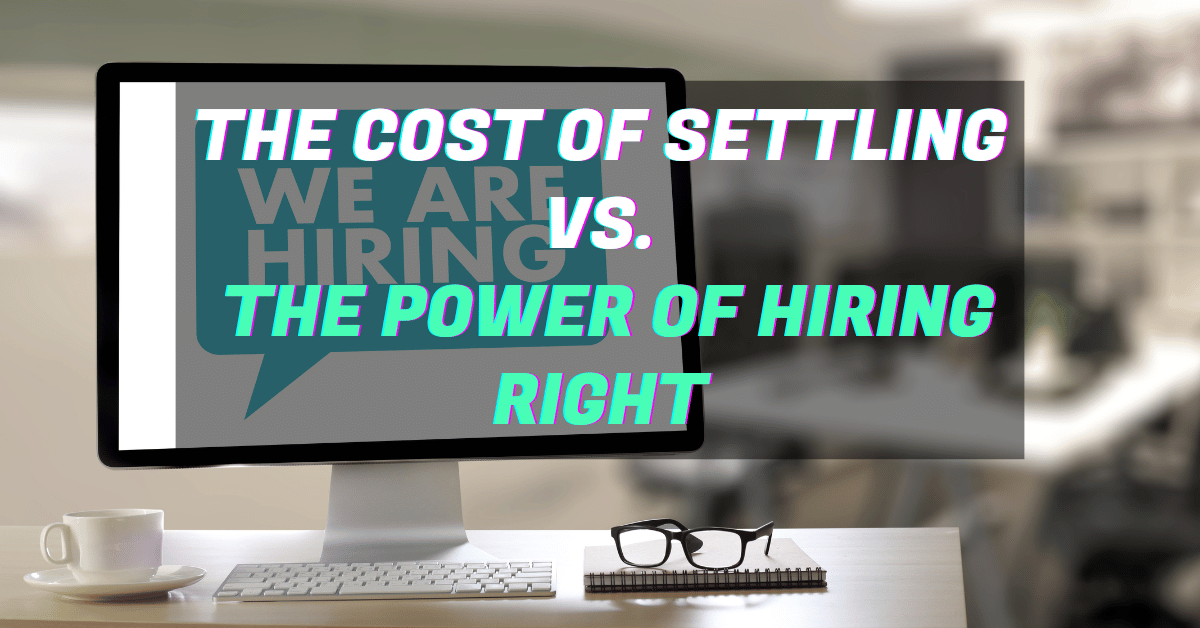Raise your hand if you’ve heard conflicting advice about resumes? Perfect, you’re in the right place.
It is overwhelming to think about how many resume tips and tricks are floating around on the internet (yet here I am, adding another one). Whether you are creating a resume for the first time or have questions about optimizing what you currently have, it’s important to have a go-to list of best practices in one place. Speaking as someone who has not only been a job seeker multiple times, but now looks at resumes on a daily basis, it’s safe to say that I have cataloged some standards that are effective across the board.
Let’s go with a Q&A style, shall we:
Should I write an “Objective” section?
In general, I suggest leaving this off. Over 90% of the time, I see objectives that state the obvious in the most bland way possible, “Passionate professional seeking career to grow long term and contribute experience to the company.” Wow. Incredible. You’re hired.
Let your experience speak for itself. If you’re a Project Manager with 10 years of experience, why type a redundancy at the top of the page when the bulk of your resume highlights your key accomplishments and competent skill set? The only time I would suggest writing an objective statement would be if you are entering the workforce for the first time with little to no work experience. If that’s the case, make sure your objective is specific and relevant to the position you are seeking. You can think of it as a condensed cover letter.
Is the “one page” resume rule still a thing?
Nope. I’ll tell you why. First of all, the bulk of a job search process nowadays is done virtually (uploading your resume online, emailing a resume to a hiring manager, etc.) when a few years ago it may have been excessive to provide a resume that resembled a short novel stapled together. Second of all, as jobs become more specialized, especially within technology, it is important to elaborate on what you did, when you did it, and how you did it. And ultimately, if you have more than 5 years of career experience, you’re cutting yourself short by chopping off accomplishments just to fit on one page. Don’t be afraid to be a two or three pager, but the rule of thumb is still quality over quantity.
Should I write a cover letter?
This is a tough one. My thought process is this: If you are sending your resume directly to a hiring manager via email and they have no idea who you are, put together a few paragraphs that can supplement your resume on why you are a good fit. Most of us are either applying through online portals or working with a recruiter and in those instances, I frankly believe a cover letter is not necessary. Companies are looking at online applicants for normally less than 10 seconds, unfortunately bypassing your cover letter and going straight to notable experience. If you are working with a recruiter, they will be directly communicating your soft skills and high points to the hiring manager anyways. Unless specifically requested, I’d keep the idea of a cover letter on the back burner.
I had a job for a couple months and it didn’t work out, should I put that on my resume?
The short answer is: it depends. How long were you there? 2 months? 2 weeks? Ask yourself this: Did I contribute anything to the organization while I was there? If the answer is yes, explain your responsibilities. Was it a contract position? Even better. Label the role “Contractor” along with what you did.
If the answer is no, leave it off. Ideally you parted from the company civilly; if it doesn’t leave a large gap in work history, you’re fine. Are you working with a recruiter? Ask them! Don’t be afraid to ping them for advice. It’s their role to act as your career coach and they can navigate the best plan of action, especially per company.
And PLEASE do not put the reason you left a job on your resume. If someone is interested, they’ll ask. But adding “Laid Off” or “Moved Cities” is just extra clutter and could expose an unnecessary conversation.
Do I really need to tailor my resume to each job I apply for?
Yes, yes you do. I know it’s a pain in the butt, trust me. It’s very easy to auto-blast your resume to every job online and hope something sticks. And sure, you have a small percentage of that working. But if you want to be successful in your search, you have to adapt yourself to fit the position you want (granted you’re qualified for it). Read the job description, pull the top 5-10 skills and qualifications, and make those shine throughout your resume. Execution is key. If a qualification is “Experience with Salesforce”, don’t write:
- Skills: Salesforce, etc. etc.
INSTEAD try:
- Utilized Salesforce on a daily basis to enter data and track interactions with over 100 clients
Give the hiring manager some context; just because you list something, doesn’t mean you actually know it. Food for thought.
I’ve seen people put their photo on their resume, should I do that?
Personally, I think having your photo on your resume is unnecessary. Not because seeing a candidate is bad; it’s definitely great to put a face to a name, but more often than not, the photo chosen is not professional or executed properly. It also detracts from your experience. Plus, that’s what Linkedin is for! Be mindful that almost every hiring manager will go to Linkedin the second they receive your resume.
I could go for days on different questions and answers; here are some additional nuggets to digest in regards to resumes:
- Formatting should be consistent. One font type. One bullet style. Clear headers and titles. And it goes without saying that Comic Sans is a hard no.
- Add as much quantitative information to your resume as possible. Stating “Closed 53 clients per month, equaling over $10,000 in sales” is more powerful than “B2B Inside Sales”
- Your Linkedin should match your resume. Job for job. Ideally, you should copy and past your resume bullet points to your Linkedin profile per job.
- Take a look at your profile right now. Is your photo a selfie? Take that down right now. Put on a professional outfit and take some quality headshots; iPhones are very effective tools. Good lighting. Appropriate background. You’ll thank me later.
- Leave references off your resume. And you don’t have to put “References upon Request” at the bottom either (another redundancy). Have a separate document with your professional references that you can easily pass along when needed. Plus, I don’t think your references want their contact information floating around every online job application you’ve been on.
Have more resume questions? Comment below – we’d love to help!



